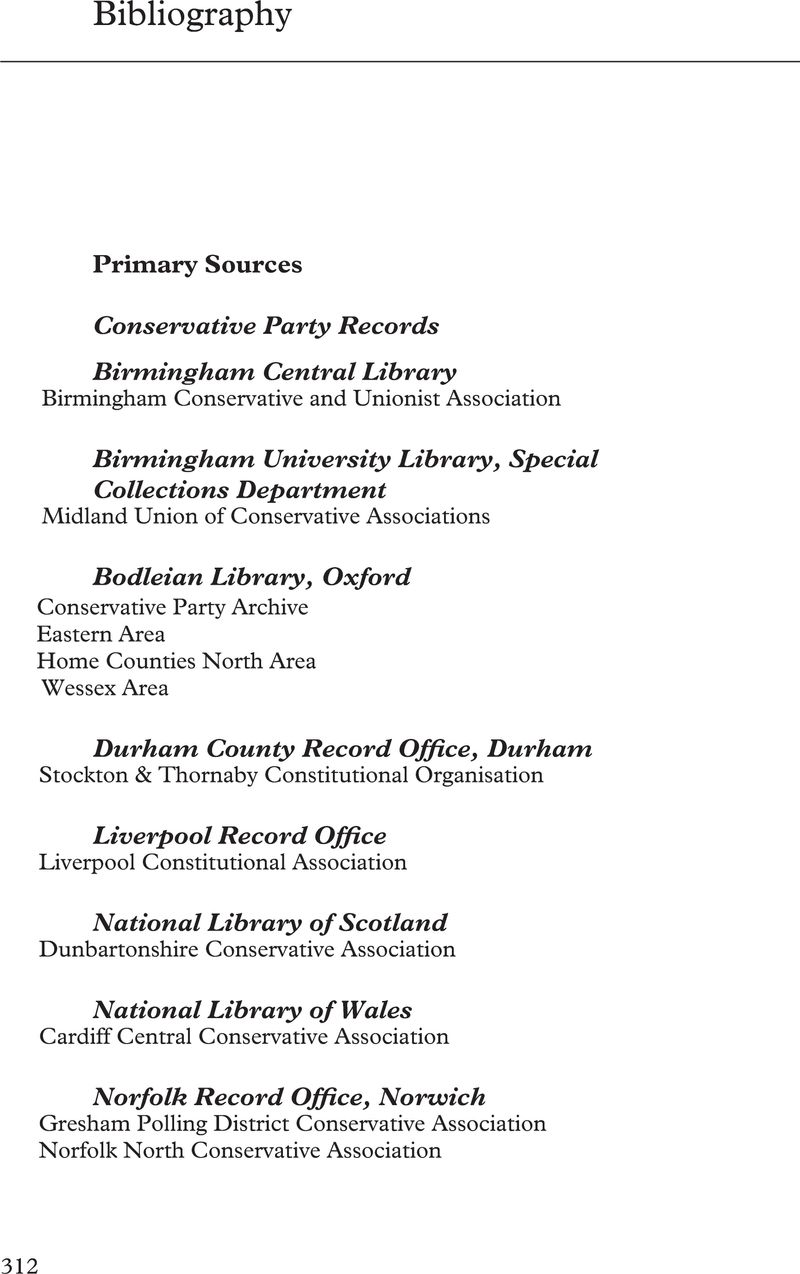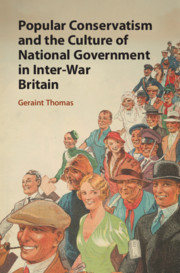Book contents
- Popular Conservatism and the Culture of National Government in Inter-War Britain
- Popular Conservatism and the Culture of National Government in Inter-War Britain
- Copyright page
- Contents
- Figures and Tables
- Acknowledgements
- Abbreviations
- 1 The National Government and Interwar Conservatism: The Historical Task
- Part I Rethinking Interwar Conservatism
- Part II Popular Conservatism and the National Government
- Part III Reputations of Government
- Appendix Parties’ Share of the Vote in the Constituency Case-Study Areas, 1918–1945
- Bibliography
- Index
- References
Bibliography
Published online by Cambridge University Press: 28 November 2020
- Popular Conservatism and the Culture of National Government in Inter-War Britain
- Popular Conservatism and the Culture of National Government in Inter-War Britain
- Copyright page
- Contents
- Figures and Tables
- Acknowledgements
- Abbreviations
- 1 The National Government and Interwar Conservatism: The Historical Task
- Part I Rethinking Interwar Conservatism
- Part II Popular Conservatism and the National Government
- Part III Reputations of Government
- Appendix Parties’ Share of the Vote in the Constituency Case-Study Areas, 1918–1945
- Bibliography
- Index
- References
Summary

- Type
- Chapter
- Information
- Publisher: Cambridge University PressPrint publication year: 2020



